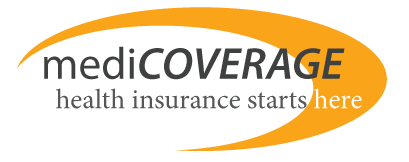HSA Eligible Expenses
Knowing which procedures and items are HSA-eligible expenses is important for people with health savings accounts. In order to get the most benefit from an HSA, you’ve got to be prepared to use it on the wide variety of health-related expenses it covers.
HSA-eligible Expenses
While HSA plans have contribution limits, there are quite a lot of services you can use your contribution for. Here is a list of some of the things you can pay for with your tax-free HSA dollars include (but are not limited to):
* Abdominal supports
* Abortion
* Treatment for alcoholism
* Supports for arches
* Obstetrician
* Metabolism tests
* Costs associated with operating room
* Optician services
* Outpatient care lodging
* Neurologist
* Legal expenses
* Lab tests
* Ambulance fees
* Acupuncture
* Artificial limbs
* Blood transfusions
* Braces
* Cardiographs
* Blood tests
* Orthopedic shoes
* Oral surgery
* Nursing
* Osteopath
* Prescription birth control pills
* Optometrist
* Removal of lead based paint
* Transplantation of organs
* Spinal fluid test
* Radium therapy
* Handicapped schools
* Registered nurse
* Splints
* Psychologist
* Splints
* Prescription drugs
* Diathermy
* Elastic hose
* Eyeglasses
* Therapy for drug addiction
* Diagnostic fees
* Dentures
* Dermatologist
* Crutches
* Contact lenses
* Christian science practitioner
* Sterilization
* Fluoridation unit
* Surgeon
* Therapy equipment
* UV ray treatment
* Guide dog
* Treatment for gums
* Health care transportation expenses
* X rays
* Insulin treatments
* Wheelchair
* Hydrotherapy
* Hearing aids and batteries
These are only some of the HSA eligible expenses that are covered; with further research you may be able to uncover even more potential savings with this flexible health care tool.
How an HSA Plan Works
If you are not a current member of an HSA plan and are wondering how one works, here is a brief summary. The first thing you have to do is enroll in an insurance policy that has a high deductible that is qualified to work with an HSA account. These policies are called “High Deductible Health Plans” or HDHPs” and they have been developed specifically to work hand-in-hand with the health savings account. Because the HDHP / HSA account duo has a high deductible, your monthly premiums will be cheaper than most traditional plans.
Next, after you are signed up for the HDHP, you can then set up the actual health savings account at any financial institution that is qualified. This is much like opening an IRA or other investment vehicle. A bank or investment firm is the one that maintains the account. They will issue you an HSA debit card, probably with a Visa or Master Card logo on it and you can start spending your HSA dollars on HSA eligible expenses right away. As long as you continue to spend your funds on health-related expenses, they remain tax-free.
Shopping for an HSA
An HSA can be an excellent tool for a savvy family, but it’s not for everyone. The best way to find out if an HSA is right for you and your family is to get some hsa quotes, look at the premiums and evaluate the deductibles. Then you can decide whether the risk of the high deductible is worth the rewards of the low premiums, the tax-free savings, the flexible spending on health-related expenses, and the added control over how you spend your health care dollars.
To learn more contact us at 800-930-7956 or click here to get an HSA individual quote.

Comments and Questions
Click to leave a CommentComment from KelleyMayo19 on July 22, 2010
Some specialists say that personal loans help a lot of people to live their own way, just because they are able to feel free to buy necessary goods.